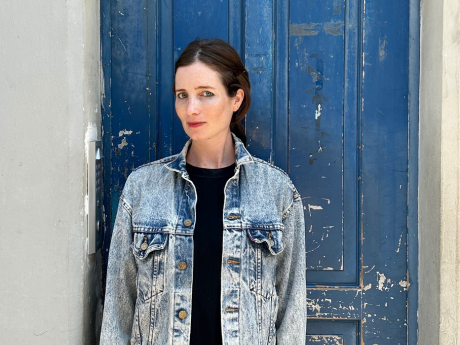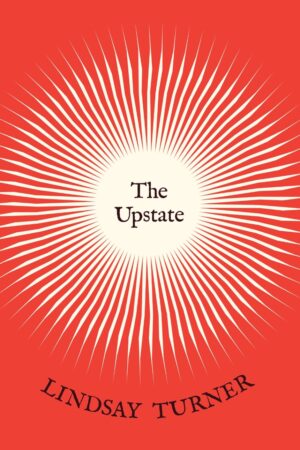In Their Own Words
Lindsay Turner on “The Upstate”

The Upstate
this is now
the dark underbelly
dogfights in the mountain county where they found the dog beside the road
the edges turning yellow, strain in the house and over it
how could we and survive
living in the place I left by choice
living season when things are decided
learned care / learned care pushed past care
roadside goldenrod
season of contentment / of the beast
Reprinted from The Upstate, published by The University of Chicago Press. All rights reserved.
Lindsay Turner on “The Upstate”
“The Upstate” is the title of a few poems in the collection The Upstate, and this “Upstate” is the first poem I wrote for the book, although of course I didn’t know what I was doing at the time. I’ve written about the particularly dark years of the book’s composition elsewhere, and this poem comes out of the moment I was just beginning to feel these years as a new period of struggling hard with what it means to live in a place you both love and hate. For me, this place was the upstate region of South Carolina, just on the other side of the Blue Ridge from the small industrial city in northeast Tennessee where I grew up.
In a desperate but lucky attempt to adapt to living in the damp little overgrown house we rented for $800 monthly, in a town from which I felt alienated and a suburban life I would never have chosen, my husband Walt and I adopted Sadie, a scruffy blond terrier mix. Someone had found her in the mountains of western North Carolina, near where my grandparents had lived. She was so scared and scrappy that she bit the man who rescued her, and later there was some speculation that she’d been used—it’s too awful to write out, almost—in dogfights, as bait. We got her in late September, and the first month or so was glorious: we took her hiking back up in North Carolina, on the mountain balds that are still some my favorite places in the world. She learned to trust and, slowly, to play, and she’d fall asleep with her little head in my lap. The world felt sunny and glorious and it felt good to be taking care of this little (and it soon emerged, fierce) creature.
But then a whole host of bad things happened, and kept happening, as if the world had just flipped like a coin. After a few years of pretty intense depression, I’d been broken open, reawakened to the world, and it was golden for a hot second before it got very dark, very fast. I didn’t know how to write about it, but I needed to figure out a way to write about it, also fast. Looking back, I remember that this poem felt like something new, a new music after my first book, Songs & Ballads, which is by and large written in neater, regular quatrains. By contrast, this was uneven and short and I knew I groping towards somewhere and maybe wasn’t quite there but had to let it stand for now. I think I was using the double line breaks—the actual line breaks and the signaled line breaks, which I learned from Shane McCrae’s genius work—as a way of letting things be ragged when they needed to be, letting the lines break in a few different places.
“Season of contentment / of the beast:” The Upstate is very much a book about a season in my life, in the way people use “season” to refer to a longer period of time than just a season. In time, I’ve begun thinking it of a season of contrasts held in simultaneity, a season of lived contradictions: loving and hating, making a home and being terribly estranged, feeling despair and contentment at the same time.



